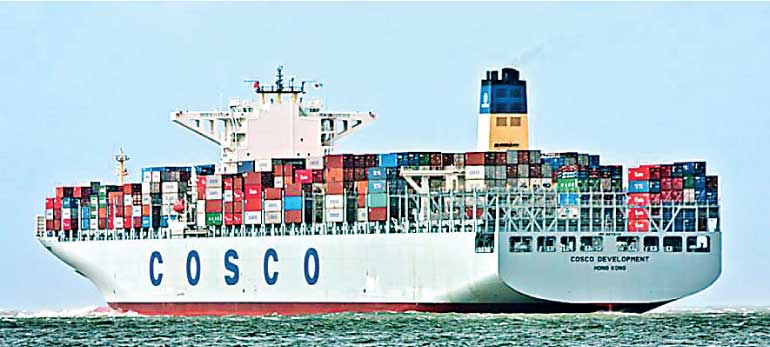Friday Apr 19, 2024
Friday Apr 19, 2024
Monday, 19 June 2017 00:03 - - {{hitsCtrl.values.hits}}
ATHENS (Reuters): Piraeus Port, operator of Greece’s biggest port and majority-owned by China’s COSCO Shipping, has agreed to team up with the operator of Shanghai port, the world’s largest container port, to promote container shipping traffic.
Piraeus, COSCO Shipping and Shanghai International Port Group (SIPG) have agreed to cooperate in project planning, staff training and information exchange, Piraeus said in a statement on Monday.
It said the agreement would create synergies to boost trade and create new business opportunities.
Shanghai is China’s main gateway port to the world and had a throughput of 36.5 million TEUs (20-foot equivalent container units) in 2015.
“The agreement means that huge quantities of goods will be transported to Piraeus from Shanghai,” Deputy Economy Minister Stergios Pitsiorlas said on the sidelines of the event.
China has been investing heavily in Greece in recent years. COSCO bought a 51% stake in Piraeus Port for 280.5 million euros ($314 million) last year under its plan to make Greece a transhipment hub for rapidly growing trade between Asia and Eastern Europe.
It has the option to buy another 16% after five years once it completes mandatory investments of 300 million euros to upgrade infrastructure.

COSCO has been managing two of the port’s cargo piers since 2009 and has helped Piraeus shoot up the world rankings of container ports to 44th biggest in 2015 from 93rd in 2010. Piraeus had a throughput of 3,750 million TEUs last year and expects this to exceed four million this year.
COSCO plans to increase the volume to five million by 2018 and aims to also increase cruise traffic from one million passengers a year to 1.5 million in the short term.
Under China’s plan to generate economic prosperity by developing a new Silk Road for international trade, China and Greece agreed last month to boost cooperation in infrastructure, energy and telecommunications.